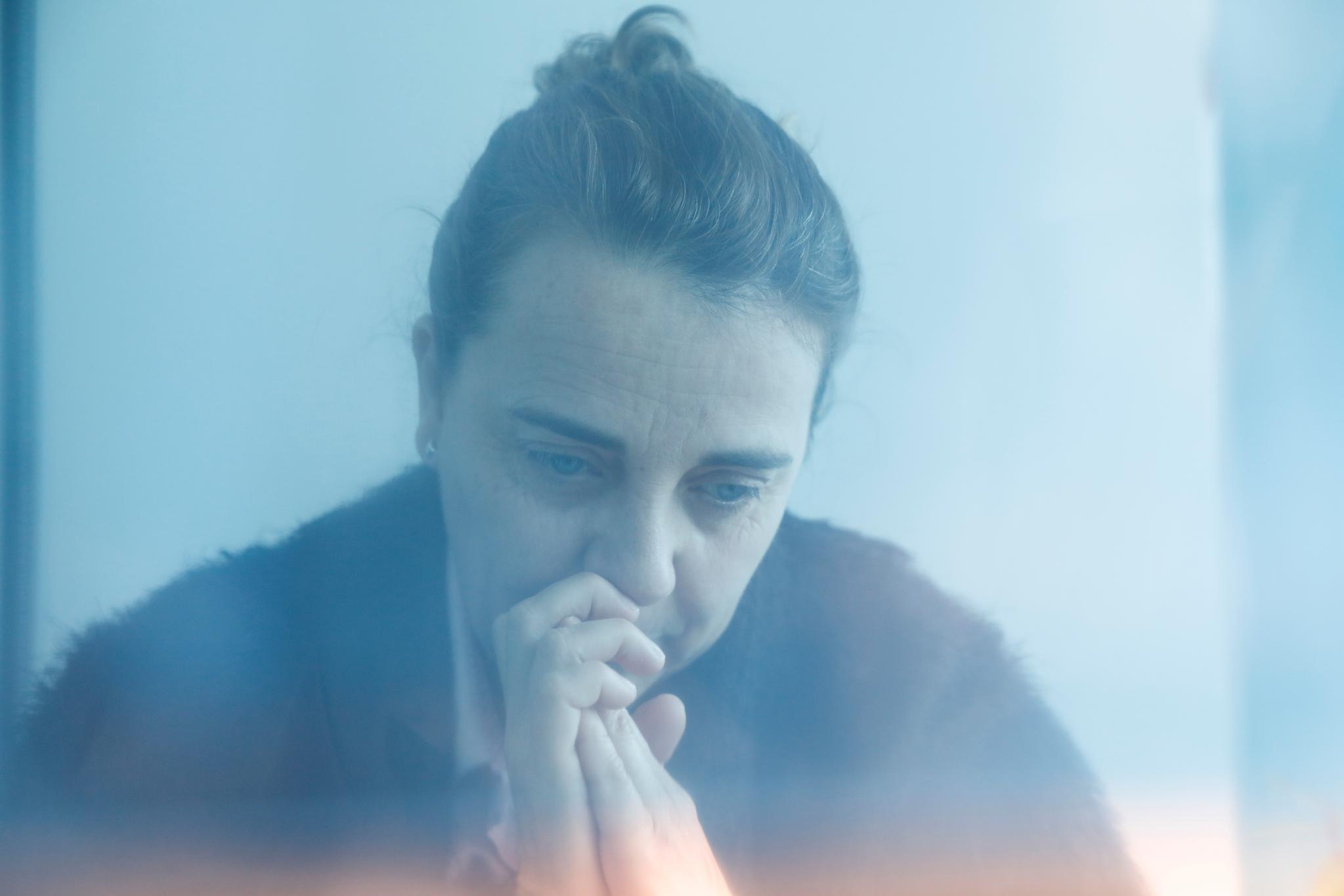
MADRID (Reuters) – Teresa Dominguez, 55, was doing her weekly shopping near her home in Collado Villalba, north of Madrid, when she realized she was wandering aimlessly, feeling lost in the aisles and without a clue of what she needed.
She paid for what she had already picked out and left.
The “mental mist”, as she describes her inability to concentrate, and permanent fatigue after performing the simplest of everyday tasks have constrained her life for the past year, since her March 2020 coronavirus infection developed into what doctors call a post-COVID syndrome, or “long COVID”.
“I feel like my 91-year-old mother physically,” says Dominguez, a mother-of-two and a social worker specialising in disabilities, who has been on medical leave since November.
A recent survey by the Spanish Society of General and Family Physicians (SEMG) – which interviewed 2,120 people of whom 1,834 had symptoms compatible with the disease – found the typical profile of a post-COVID syndrome patient was a 43-year-old woman with 36 symptoms on average.
While severe COVID-19 infections are more frequent in men, long-haul COVID seems to affect women more – they accounted for around 80% of the cases in the SEMG study.
Eight women, and two men, spoke to Reuters about their experience of long-COVID, and sat with a photographer for portraits shot through a “fog” of blue plastic to visualise how the condition made them feel.
Like Dominguez, sufferers often report being unable to do routine tasks such as shopping or cleaning. For some, even watching a movie can be exhausting.
The World Health Organisation said in February that understanding the post-COVID conditions was “a clear priority”, while pointing out that “regrettably, some (patients) were met with disbelief or lack of understanding”.
Several women who spoke to Reuters, including 23-year-old anthropologist Shalini Arias, said doctors initially shrugged off their symptoms, while bosses or colleagues sometimes thought they were exaggerating.
“I’ve felt doubly misunderstood, as if I were a hypochondriac and as if I were a high-maintenance woman seeing the doctor because I’ve nothing else to do,” Arias said.
‘I’M MUCH CLUMSIER’
The WHO says roughly one out of 10 coronavirus patients remains unwell after 12 weeks, and many for much longer.
Two other studies, by Britain’s Leicester University and the International Severe Acute Respiratory and Emerging Infections Consortium, have suggested women in their 40s and 50s are more at risk of long term problems following COVID-19 infections.
Year-long symptoms have made Maria Eugenia Diez, a 43-year-old nurse, give up exercise and forego medical conferences, where she has trouble concentrating.
She sometimes feels like a rookie at work, despite her 20 years experience, and has invented routines to remember tasks she used to perform automatically.
“It happens to me when I drive. I’m much clumsier. I have to think every day how many gears the car has, where are the rear-view mirrors, the wiper and the water, or the pedals,” she said.
Anna Kemp, a 51-year-old Briton living in Spain for almost 30 years, says the condition affected her ability to communicate in Spanish and she stopped watching complex TV shows because she could not follow the plot.
SEMG vice-president Pilar Rodriguez Ledo said her research team was in the initial phase of studying whether hormones could be a factor in long COVID, since pregnant women appear to be less susceptible, or whether the answer is in a gender-specific response of the immune system.
Beatriz Perez, a 51-year-old computer engineer, used to go trekking on weekends, but now is rarely able to complete her personal challenge of walking all the way down the stairs from her eighth-floor apartment, not to mention up.
Permanent fatigue and forgetfulness have kept her off work, and she says “the worst thing is living with the uncertainty” of not knowing when or if she will recover.
Such fears trouble many, but nurse Diez is trying to stay positive.
“I’m adapting to what I have, I will enjoy what I have now and I can’t keep thinking about what I had before,” she said. “It’s hard because I miss it a lot.”
Writing by Emma Pinedo; Editing by Andrei Khalip and Alex Richardson
Image; Long COVID sufferer Teresa Dominguez, 55, a social worker specialising in disabilities, poses for a photograph taken through blue plastic, in Collado Villalba, Spain, March 4, 2021. The photograph was taken through blue plastic to visualise the effects of long COVID. Dominguez had only missed work when she gave birth to her children. The “mental mist”, as she describes her inability to concentrate, and permanent fatigue after performing the simplest of everyday tasks have constrained her life for the past year, since her March 2020 coronavirus infection. “I started writing a diary because when doctors asked me about my symptoms, I couldn’t remember many of them. At first doctors didn’t know much about long COVID and I felt like I could help them out and others in my situation by providing them with that information. It has often been difficult to make them believe that we are really sick, that we are not making this up,” she said. REUTERS/Susana Vera




